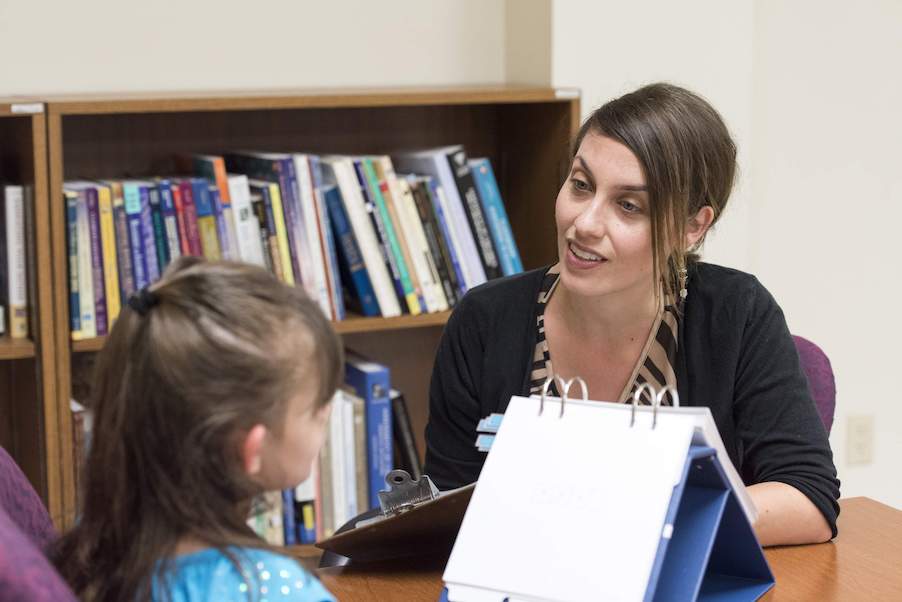Innovative special education, school psychology degree program lands $1 million federal grant
Jayme Blaschke | December 19, 2019

The College of Education at Texas State University has received a $1 million grant from the U.S. Department of Education’s Office of Special Education Programs (OSEP) in support of an interdisciplinary advanced degree to train special education teachers and school psychologists to collaboratively serve children with learning and behavioral needs.
The grant will allow the College of Education to fund 10 students pursuing a master's degree in special education and 10 students pursuing a specialist degree in school psychology over a period of five years.
The program, Partnering Assessment and Intervention Responsiveness in Interdisciplinary Teams (PAIR-IT), will enroll its first cohort of five special education master's students and five school psychology students in fall 2020. Students in the two disciplines will share select coursework and complete assignments together. Unique to the program, students will be placed in pairs for the program's fieldwork components, consisting of practicum placements and an internship year. This joint fieldwork allows students' collaborative learning to continue outside of the classroom and prepares them to serve on interdisciplinary teams in their future roles.
Cathy Thomas, associate professor in the Department of Curriculum and Instruction, developed PAIR-IT to find a sustainable solution to the prominent shortages and high rates of attrition in the special education field. When OSEP released a grant competition focused on interdisciplinary preparation for personnel serving children with disabilities earlier this year, Thomas built her proposal around recruiting students to Texas State's special education master's program. Her goal was to recruit students seeking a first-time special education certification in order to bring new teachers into the field.
Special education teachers and school psychologists work together in school districts to provide learning and behavioral interventions for students, and to identify students with disabilities, so it was logical to Thomas that these two disciplines should also be trained together in their advanced degree programs.
"The first day they step onto a school campus, they sit at the same table with somebody who uses different jargon and has a completely different specialty set," Thomas said.
Through PAIR-IT, Thomas said she hoped to bridge these communication barriers by training future special education teachers and school psychologists to become consultants to and collaborators with each other. Beyond training new professionals, PAIR-IT aims to improve how children with disabilities are identified and how services are provided to them. The interdisciplinary training is expected to contribute to a tiered support system in which both professionals can work together to coordinate instruction and intervention.
Share this article
For more information, contact University Communications:Jayme Blaschke, 512-245-2555 Sandy Pantlik, 512-245-2922 |